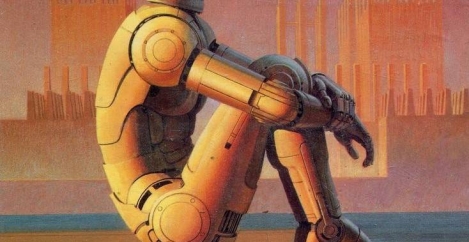August 21, 2018
The Fourth Industrial Revolution will be the most disruptive yet, senior economist predicts
 The rise of artificial intelligence and automation will create a Fourth Industrial Revolution that will be be significantly more disruptive than the three previous industrial revolutions, according to the Bank of England’s chief economist. According to Andy Haldane, the transformation caused by automation of cognitive skills had the potential to have a greater impact than Britain’s first industrial revolution, when coal and steam changed the country, the second industrial revolution which brought chemical engineering and the combustion engine, or the widespread use of computers in the 20th and 21st centuries.
The rise of artificial intelligence and automation will create a Fourth Industrial Revolution that will be be significantly more disruptive than the three previous industrial revolutions, according to the Bank of England’s chief economist. According to Andy Haldane, the transformation caused by automation of cognitive skills had the potential to have a greater impact than Britain’s first industrial revolution, when coal and steam changed the country, the second industrial revolution which brought chemical engineering and the combustion engine, or the widespread use of computers in the 20th and 21st centuries.
According to reports, automation has already displaced millions of low-skilled jobs, but commentators like Mr Haldane are now predicting that AI will displace millions more in the next two decades as new technologies with increasingly sophisticated functionality come into use, including those that can mimic or even outperform some human cognitive functions.
The UK’s Serious Fraud Office already uses AI instead of barristers to sift through case documents to identify relevant evidence and AI is already making inroads into the domains of engineering and medicine.
In an interview with the BBC Radio 4 Today programme, Mr Haldane said: “The first three industrial revolutions have been about largely machines replacing humans doing principally manual tasks, whereas the fourth will be different. All of a sudden it will be the machine replacing humans doing thinking things.”
Referencing the impact of the Industrial Revolution, he said: “There was a hollowing out of the jobs market and that left a lot of people . . . struggling to make a living. That heightened social tensions and financial tensions, it led to a rise in inequality. This is the dark side of technological revolutions.”
He said that the next hollowing out could be on a much greater scale. “We will need even greater numbers of new jobs to be created in the future if we are not to suffer this longer-term feature called technological unemployment.”
A June report by the accountants PWC predicted that about 7 million jobs could be displaced by 2020 but 7.2 million could be created. The biggest losses would be in manufacturing, transport and public administration; the biggest gains would be in healthcare, technical and scientific services and education, it said.














